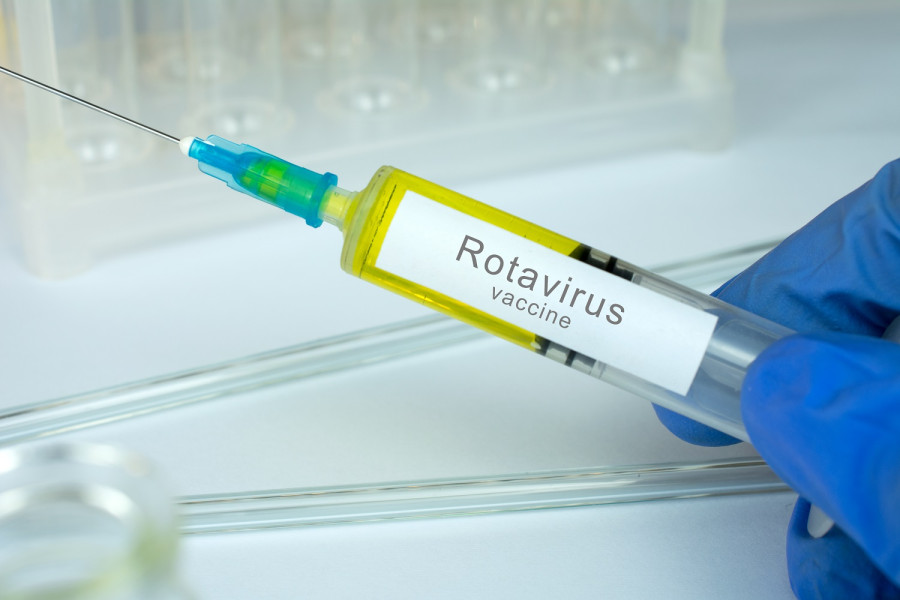Health
Over 620,000 children under one year to get rotavirus vaccine starting this week
With seven new vaccines introduced since 2004, the number of vaccines on the regular immunisation list reaches 12.
Arjun Poudel
Over 620,000 children under one year of age will be protected against rotavirus, as the government is launching a rotavirus vaccine across the country from this week.
"We have supplied the vaccine to the seven provinces and all provinces have been supplying them to the districts," said Dr Jhalak Sharma, chief of the immunisation unit at the Family Welfare Division under the Department of Health Services. "All the preparations necessary to launch the vaccine have been over."
With the additional item, the number of vaccines on the regular immunisation list has reached 12. These are administered free of cost from state-run health facilities.
The first dose of the 1.5 ml oral vaccine will be administered in six weeks while the second dose will be administered in 10 weeks. But the vaccine could be administered up to one year if a child misses the dose for any reason, according to officials.
The vaccine protects against rotavirus infections, which are the leading causes of severe diarrhoea, vomiting, fever and abdominal pain among infants and young children. Diarrhoea is the most common illness among children and continues to be one of the major causes of infant morbidity and mortality, according to the National Demographic Health Survey (2016).
The study shows that 6 percent of children under six months suffer from diarrhoeal infections. The infection rate sharply rises to 15 percent by the time they reach 11 months.
The virus causes 30 percent of the total diarrhoea occurrence in children under the age of five, according to a study carried out by Kanti Children’s Hospital and Patan Hospital.
A proposal to introduce rotavirus vaccine was approved in 2017 and the Ministry of Health and Population had planned to launch it across the country at once in 2018.
The government had listed the rotavirus introduction programme last fiscal year, but the aid agency Global Alliance for Vaccines and Immunization failed to provide the vaccine on time.
"Even at the time of pandemic, we are going to launch the vaccine across the country," said Sharma. "This initiative will help us reduce the under-five mortality rate."
The mortality rate of children under five years in the country stands at 39 per 1,000 live births.
The alliance has provided all the required doses of vaccine and for initial operating costs including the training of health workers.
Child health experts, however, say since this is only one among several causes of diarrheal infection among children, the government also should focus on other ways— hygiene, sanitisation and safe drinking water to prevent deaths.
"Every year, hundreds of children get infected with cholera, typhoid and other diseases," Dr Shyam Raj Upreti, former director of the Child Health Division, said. "It will be a mistake if we think that this vaccine will stop all deaths from diarrhea."
The government has introduced six vaccines since 2004—vaccines against viral hepatitis B in 2004, Japanese encephalitis in 2006, haemophilus influenzae in 2008, measles-rubella in 2012, inactivated polio vaccine in 2014, pneumococcal vaccine in 2015 and the rotavirus vaccine.




 9.7°C Kathmandu
9.7°C Kathmandu















